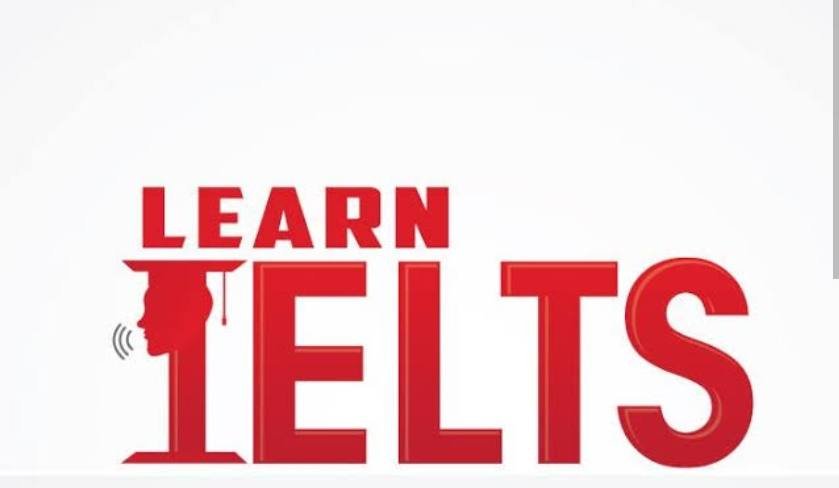Table of Contents
Many of you are still surprised when you first encounter IELTS or don’t know where to begin IELTS preparation, and do not know which materials to study first among the many documents currently available in your library. As a result, the IELTS beginner’s guide is essential for your reference.

How_much_does_it_cost_to_learn_ielts_in_nigeria
Check out more:
How Much Does It Cost to Learn IELTS in Nigeria? Things to Know About IELTS
Simple Step By Step Process To Study IELTS for Public Relations In United Kingdom
Because many of you are still troubled when you first encounter IELTS and are uncertain how to begin IELTS exam preparation, choose which materials to study first from among the many documents currently available in your library. So I took the time to write this article to help you.
The IELTS exam structure (WAPZOLA for reference, slightly modified)
Overview of the IELTS:
IELTS (International English Language Testing System) is an English certificate currently issued by three institutions: Cambridge University, British Council (BC) – UK, and IDP – Uc. Only these locations or their branches are authorized to host IELTS tests.
Main Content
- What does IELTS include and how is the exam structured?
- How to Score IELTS
- Where is the IELTS test?
- Where to study IELTS (HCM)?
- IELTS preparation materials – IELTS self-study
What does IELTS include and how is the exam structured?
IELTS is also made up of four tests: listening, speaking, reading, and writing, with a maximum score of 9 for each section (not 10 as we think).
LISTENING
It is a 20-30 minute test with about 40 questions. The listening test has four parts (the number of questions is not distributed evenly), you listen once and the pauses are included on tape or disc, so you will listen to one circuit. Candidates will have 10 minutes after the test to transfer their results to the Answer Sheet.
- Part 1: are everyday situations (registering for activities, renting a house, enrolling in school) that are usually a conversation but more of a question and answer session, with the respondent usually speaking more.
- Part 2: is an instructive setting that introduces a familiar topic (school, tourist location, music program, exhibition, etc.) but is usually only spoken by one person.
- Part 3: are dialogue situations involving at least two people; these are academic seminars (eg choosing a thesis topic, scientific research topic)
- Part 4: is a presentation on an academic topic, usually given by one person and containing many academic words.
READING
Is a test consisting of approximately 40 questions in exactly 60 minutes (no time for transfer), divided into three parts, each of which is a reading passage of approximately 1500 words with questions distributed pretty evenly. Unlike the listening test, the reading passage has no increasing difficulty and is entirely random (in addition, it depends on the topic that may be familiar to the candidate).
WRITING
This is a test consisting of two exercises each lasting 60 minutes (candidates must distribute their own time), one of which involves describing a graph, a process, and a phenomenon represented by gender. An essay is a written piece on a specific topic.
SPEAKING
This is a 12-15 minute talk divided into three parts:
- Part 1: Respond to questions about general topics like family, hobbies, hometown, and so on. This section is critical because it focuses on how to respond rather than answering the examiner’s questions about you. The examiner has already begun marking your Speaking in this section of your test. The examiner has estimated the number of points you will receive in the Speaking section based on your performance in this part.
- Part 2: The examiner hands you a piece of paper and asks you to describe an issue that concerns you, such as a picnic, a memorable situation in your life, describing your city… There will be four suggestions in the request so that candidates can easily develop their ideas. Candidates have one minute to think and may take notes on a piece of paper. Candidates have 2 minutes to respond after 1 minute of thinking. The examiner will confirm your Speaking test score at the end of your answer. Going to
- Part 3 is just about whether you get any more points or not, but if you answer incorrectly, you can lose a point.
Part 3: The interrogation will ask you questions about the phenomena and events that you have described above. This section’s questions are typically of the following types:- Discuss: Discuss the role of movies in today’s society.
- Compare: Compare products made in your country to those made elsewhere.
- Speculate: How might the tourist industry in your country change in the future
- Analyse: What are the advantages/disadvantages of being a movie star?
- Explain: Explain why you can’t just learn English from a book.
- Evaluate: Do you think television has helped to make the world a better place to live
How is IELTS Graded?
Speaking: The examiner does not grade your ideas based on how much or little you can speak. Which indicates the ability to present the answer like a native speaker, that is, the ability to use complex sentences, compound sentences, the ability to connect sentences using conjunctions, the ability to use idioms like native speakers, the ability to use passive tense, conditional sentences. Finally, there is vocabulary, ideas, fluency, and correct pronunciation.
Reading and listening: The number of correct sentences will be assigned points.
Writing: Remember that the examiner will award the most points for your idea in answering the requirements of the question. The following sections cover the lesson structure, vocabulary, and grammar. So, when studying writing, you should practice giving your opinion on previous IELTS writing questions, because you may encounter the exam questions again later. Of course, your opinion must be relevant to the type of question, so you must learn how to respond to each type of writing question.
You keep in mind that failing to complete the writing task within the specified number of words will result in severe punishment; regardless of how well you write, you will lose a few points or score no more than 5. Task 1 requires 150 words, while Task 2 requires 250 words.
Where can you take IELTS in Nigeria?
We offer a range of convenient test dates in 11 official IELTS test centre locations across Nigeria. You can choose to take your IELTS test on paper or on a computer. Whichever you prefer, you will need to come to a test centre to sit your test. Booking IELTS tests is extremely competitive as there are only four tests available every month. As a result most students book their IELTS test in advance, meaning availability is limited. Most IELTS test centres are fully booked a month in advance. Find out more at: https://www.britishcouncil.org.ng/
Test centres offering IELTS on paper
Abeokuta, Abuja, Ajah, Akure, Asaba, Benin, Calabar, Enugu, Festac, Lagos Mainland (Gbagada & Ikeja), Ibadan, Ikorodu, Lagos Island (Ikoyi), Ilorin, Kano, Osogbo, Port Harcourt, Surulere, Uyo, Warri and Yaba.
Test centres offering IELTS on computer
Abuja, Benin, Lagos Mainland (Gbagada), Lagos Island (Ikoyi), Kano and Port Harcourt.
IELTS preparation materials – IELTS self-study
IELTS WRITING is the most difficult because there are few specialized writing materials for IELTS WRITING essays, graphs, and letters, with the majority of writing materials being for TOEFL. A good way to learn is to read as many samples as possible, as well as a number of Writing instructional ebooks currently in your database, and then draw your own conclusions.
Finally, about two months before the test, you should do a lot of PRACTICE TEST, doing the test in real time by pressing the clock. Reading time is 60 minutes, writing time is 60 minutes, listening time is 30 minutes, and speaking time is 15 minutes. You should practice in this manner so that you are not surprised or under time pressure when you enter the exam room.
The documents I recommend for this section are in the IELT PRACITICE TEST directory; pay special attention to the most recent IELTS CAMBRIDGE books to familiarize yourself with the test questions; these are real suggestions that have been used previously-now no longer used-and written into a book to sell to candidates to familiarize themselves with the exam.
- (Ebook Review) Download 31 High Scoring Formulas to Answer the IELTS Speaking Questions PDF
- (Ebook Review) Download the full set of Hackers IELTS basic Free PDF Listening + Reading
- (Ebook Review) Download free Objective IELTS Intermediate Student’s Book Answer Key PDF format

